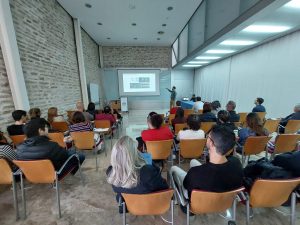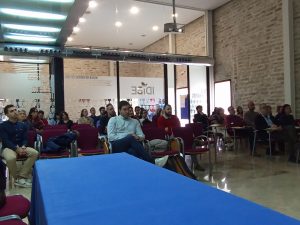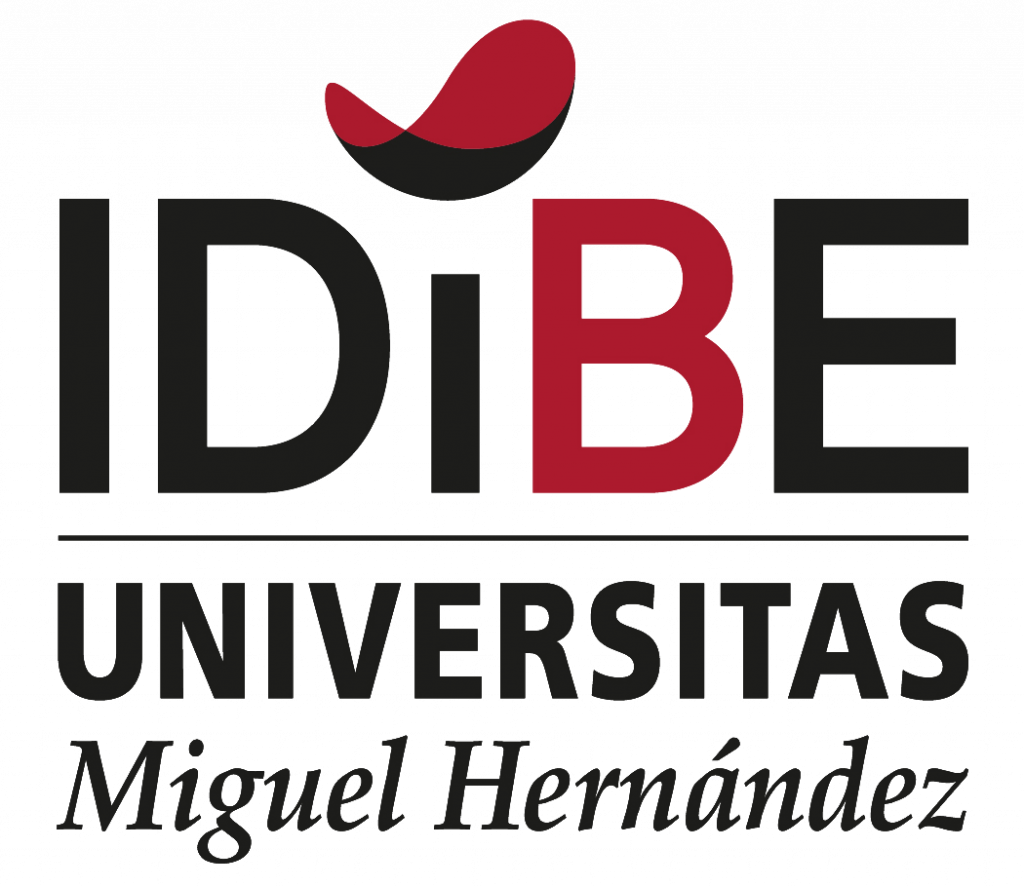The speakers from left to right: Mariló Olivares, Laureano Carpio, Roberto de la Torre, Pablo Largo Barrientos, Nuria Ruiz Reig, and Javier Aguilera-Lizarraga.
The event started at 10:00 a.m. on Thursday, December 19, in the Von Humboldt Room of the Torregaitán building (Elche Campus) with a welcome by Ángel Nadal, Deputy Director of IDiBE. The participants included Roberto de la Torre, Nuria Ruiz Reig, Javier Aguilera-Lizarraga, Pablo Largo Barrientos, Laureano Carpio, and Mariló Olivares.
IDiBE highlighted the profiles of the participants:
Roberto de la Torre holds a degree in Biology and completed his PhD at UMH under the supervision of Professors Antonio Ferrer Montiel and Asia Fernández Carvajal. In December 2016, he joined the group of Professor Gilad Silberberg at the Karolinska Institute in Sweden, where he has worked for over seven years. There, he studied the sensorimotor functions of striatal neurons through in vivo whole-cell and multiunit recordings in awake mice, funded by an ERC project. Currently, he is researching the claustrum and its role in pain processing.
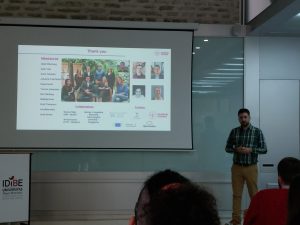
-Nuria Ruiz Reig defended her PhD at the Institute of Neurosciences of Alicante in 2016 and completed her first postdoctoral stage at the University of Nice in France. She is currently working as a postdoctoral researcher at the Université Catholique de Louvain in Brussels, leading a project focused on the role of microtubule dysfunction in neurodevelopmental disorders and neurodegeneration.
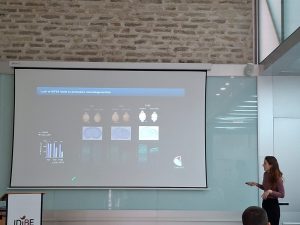
-Javier Aguilera-Lizarraga earned his degree and master’s in Biotechnology in Health Sciences from the University of Lleida and completed his PhD at KU Leuven in Belgium. In June 2022, he joined Ewan St. John Smith’s group at the University of Cambridge as a postdoctoral scientist, working on the ADVANTAGE consortium, part of the Advanced Pain Discovery Platform (MRC APDP). He has continued to study neuroimmune mechanisms in pain contexts and the physiopathological consequences of sensory neuron activation in the intestinal microenvironment, while also exploring the gastrointestinal tract of naked mole rats. He has secured a Ramón y Cajal fellowship and will join the Institute of Neurosciences in 2025.
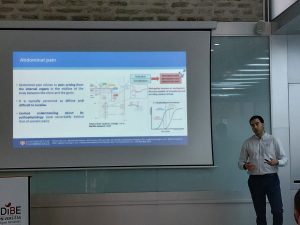
-Pablo Largo Barrientos studied Biotechnology in Salamanca, completing his undergraduate thesis in Melbourne, Australia, in Colin Masters’ lab, a pioneer in Alzheimer’s molecular mechanisms. His career has since focused on molecular neuroscience. He completed a master’s in neuroscience in Amsterdam and has been pursuing a PhD and postdoc in Patrik Verstreken’s lab in Leuven, Belgium, studying synaptic degeneration and regeneration mechanisms under physiological and pathological conditions.
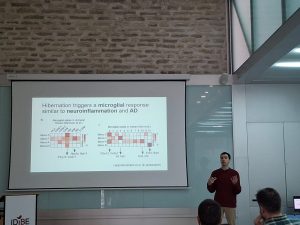
-Laureano Carpio holds a PhD in Chemistry with industrial and international distinction from the University of Valencia, specializing in computational chemistry and bioinformatics. He graduated in Biomedical Engineering from the Polytechnic University of Valencia and completed a master’s in Biotechnology and Bioengineering at UMH, conducting his thesis with Prof. José Villalaín. His research in companies like ProtoQSAR-MolDrug focused on predictive tools for bioactive compound discovery in diabetes. Currently, he integrates advanced computational methods for medicinal chemistry challenges, contributing to European projects and serving as a board member of the Early Stage Researchers group in the Spanish Society of Therapeutic Chemistry.
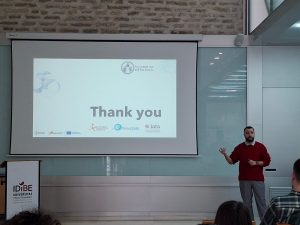
-Mariló Olivares graduated in Biotechnology at UMH, where she also completed her PhD in the Design and Development of Bioactive Molecules group, led by Dr. Vicente Micol. Her doctoral research focused on the effects of plant-derived bioactive compounds on metabolic stress related to obesity. Afterward, Dr. Olivares secured a Margarita Salas postdoctoral fellowship, allowing her to spend two years in Dr. Pedro Herrera’s diabetes lab at the University of Geneva (Switzerland). Her project focuses on cytokine dynamics in diabetes and their influence on beta-cell regeneration through alpha-cell transdifferentiation.
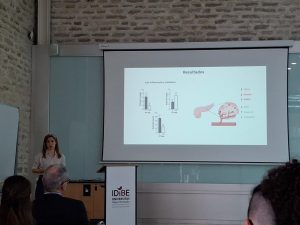
For Ángel Nadal, Deputy Director of IDiBE, “the event has been very positive because talent attraction is one of the most challenging tasks in science, and this day offers a unique opportunity to connect with exceptional individuals who meet these criteria to foster their integration into our institute.”
